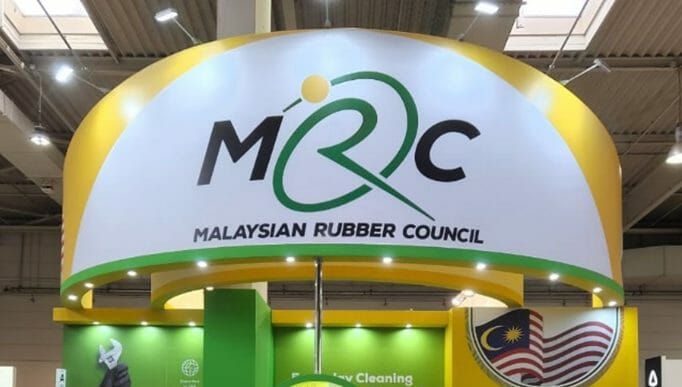The Malaysian Rubber Council (MRC) is committed to its vision of making Malaysia the top exporter of sustainably produced rubber products. With a focus on quality and sustainability, MRC promotes responsible business practices through environmental, social, and governance (ESG) initiatives while building strong relationships with stakeholders.
As of 2022, Malaysia ranked eighth globally in rubber production. In the past year, the country earned 27.16 billion Malaysian Ringgit (MYR) from rubber exports, with 70% (MYR 19.04 billion) coming from rubber gloves. Malaysian rubber goods are exported to over 190 countries, with the United States (29%) and the European Union (19%) as the top two export destinations.
In terms of exports, Malaysia was estimated to earn RM20.08 billion from rubber product exports for the while of 2023, with 59.1%, or RM11.88 billion was projected to come from rubber gloves.
The strong global demand for sustainability continues to grow, with consumers demanding for environmentally and ethically sustainable products. Industries are urged to reduce environmental impact, uphold ethical conduct and do business
without negatively impacting the environment, community, or society as a whole. As a significant contributor to Malaysia’s economy, the adoption of sustainability and sustainable practices will be the vital way forward for the rubber industry.
Acknowledging this need for change, MRC held its inaugural Rubber ESG Conference 2024 that took place from 17 to 18 January 2024 in Aloft, Kuala Lumpur by inviting industry stakeholders, experts, and leaders to participate in this impactful event aimed to promote, encourage and bolster the adoption of sustainability in the rubber industry.
The tagline, “Navigating ESG for A Resilient Future of Malaysia’s Rubber Industry,” encapsulates the conference’s focus. It aims to explore how rubber industry players and stakeholders can harmonize sustainability efforts with ESG aspects, social compliance, and resilient practices. The objective is to ensure long-term success while creating a positive impact on society and the environment.
“In pursuit of environmental sustainability within our rubber industry, it is important to prioritize eco-friendly practices,” said YBhg. Dato’ Sri Mohamad Suparadi, Chairman of MRC. “This involves investing in research for greener alternatives, implementing strategies to minimise waste and conserving energy and if possible, to convert them to be other by-product.”
The event featured four prominent speakers from the United Nations, EU Delegation, Ministry Of Investment, Trade and Industry (MITI) and International Labour Organization (ILO) leading the discussions on the progress of Sustainability Development Goals (SDGs), ESG framework for the industry, emerging sustainability regulations, social compliance, and environmental concerns within the rubber sector. Alongside the keynote presentations, a panel discussion and roundtable sessions were also held to foster engagement and meaningful discourse among participants.
The Deputy Secretary General (Plantation & Commodities) of the Ministry of Plantation and Commodities (KPK), Dato’ Zailani Hashim attended the event and joined the panel discussion on Understanding Malaysia’s Policy Initiatives for the Rubber Industry in the ESG Areas.
“Taking care of the environment and being socially responsible is not just something nice to do; it is something we absolutely have to do to guarantee the thriving future of the rubber industry”, said Muhammad Eizaaz Muhammad Redzuan, Chief Executive Officer of MRC.
An MoU exchange between MRC and Universiti Malaya, followed by another MoU exchange between MRC and MARDEC Berhad were also presented during the event.
Rubber ESG Conference 2024
The Rubber ESG Conference 2024 concluded with a roundtable discussion uniting industry members and stakeholders, which was held in collaboration with the International Labour Organization (ILO). Participants actively explored strategies to enhance sustainability within the rubber industry, emphasising the establishment of a self-monitoring mechanism. In the closing session, Mr. Daniel Rees, Director of the ILO Priority Action Programme on Supply Chain, summarised the collective dedication and shared vision for a more sustainable future in the rubber industry. He acknowledged the importance of ongoing monitoring and accountability to navigate the evolving regulatory environment while promoting sustainable business practices.









